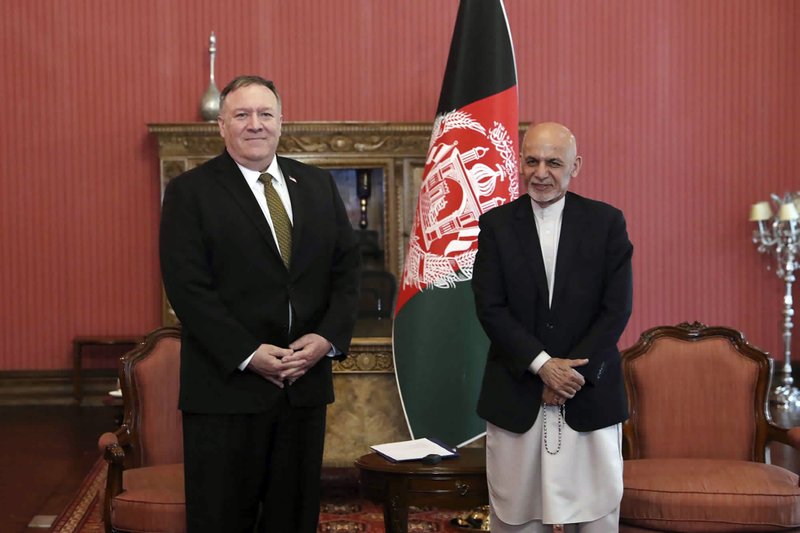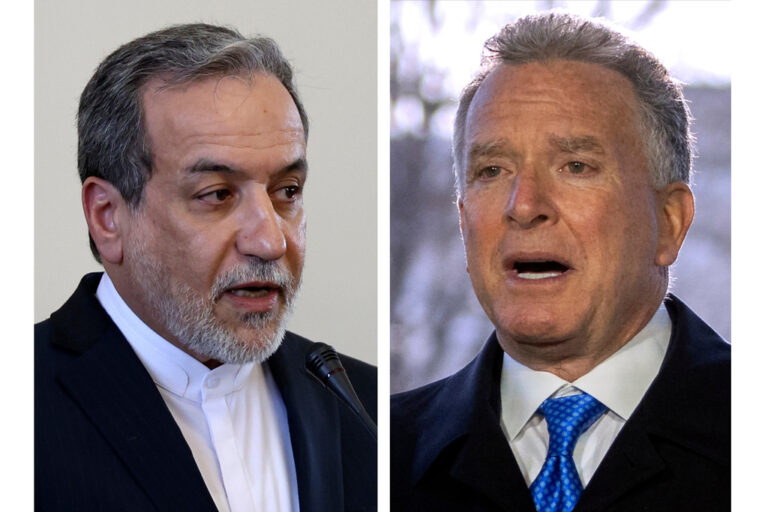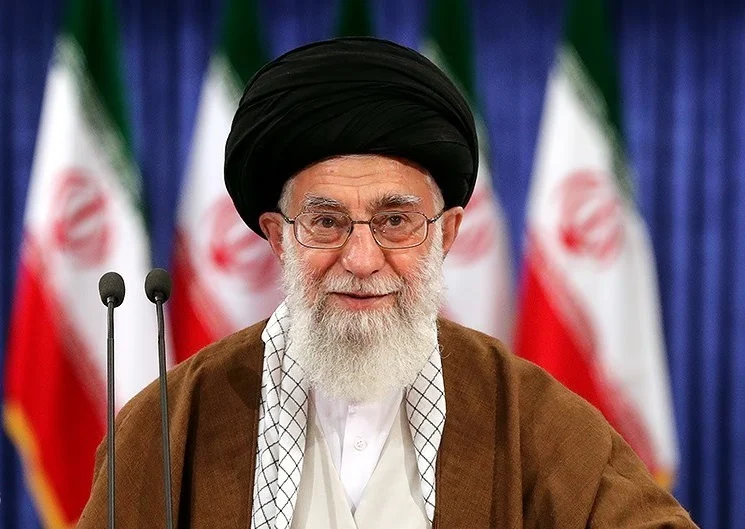The Trump administration is slashing assistance to Afghanistan and threatening further reductions in all forms of cooperation after the country’s rival leaders failed to agree on forming a new government.
The announcement came from Secretary of State Mike Pompeo on Monday after he made an unannounced visit to Kabul to meet with Ashraf Ghani and Abdullah Abdullah. Each has declared himself president of the country after disputed elections last year.
In an unusually harsh statement, Pompeo slammed the two men for being unable to work together and threatening a potential peace deal that could end America’s longest-running conflict.
“The United States deeply regrets that Afghan President Ashraf Ghani and former Chief Executive Abdullah Abdullah have informed Secretary Pompeo that they have been unable to agree on an inclusive government that can meet the challenges of governance, peace, and security, and provide for the health and welfare of Afghan citizens,” he said.
Pompeo said the U.S. was “disappointed” in both men and their conduct, which he said had “harmed U.S.-Afghan relations and, sadly, dishonors those Afghan, American, and coalition partners who have sacrificed their lives and treasure in the struggle to build a new future for this country.”
THIS IS A BREAKING NEWS UPDATE. Earlier story follows below.
U.S. Secretary of State Mike Pompeo left Afghanistan on Monday without saying whether he was able to broker an agreement between the country’s squabbling political leaders.
Pompeo was in Kabul on an urgent visit to try to move forward a U.S. peace deal signed last month with the Taliban. He’d traveled thousands of miles despite a near-global travel shutdown because of the coronavirus pandemic, at a time when world leaders and statesmen are curtailing official travel.
But as his plane took off from Kabul, there was still no announcement on whether he’d worked out a solution to Afghanistan’s political impasse between Afghan President Ashraf Ghani and his main rival, Abdullah Abdullah. There were reports in the Afghan capital that Pompeo had given Ghani and Abdullah until Tuesday to come up with a compromise, but there was no indication either side had offered to step aside.
From Kabul, Pompeo flew to Doha, Qatar, where he witnessed the signing of the U.S.-Taliban deal on Feb. 29 and where he was to meet with Taliban officials, including Mullah Abdul Ghani Baradar, a co-founder of the Taliban and head of their political office in Qatar. Baradar signed the agreement on behalf of the group. The State Department said Pompeo’s aim was “to press the Taliban to continue to comply with the agreement signed last month.”
Since the U.S.-Taliban deal was signed, the peace process has stalled amid political turmoil in Afghanistan, as Ghani and Abdullah remained deadlocked over who was elected president in last September’s presidential polls. They both declared themselves president in dueling inauguration ceremonies earlier this month.
Pompeo had met separately with Ghani and then Abdullah on Monday before meeting together with both Afghan leaders. His schedule also had Ghani and Abdullah coming together for a one-on-one meeting, presumably to discuss a possible compromise.
The United States pays billions every year toward the Afghan budget, including the country’s defense forces. Afghanistan barely raises a quarter of the revenue it needs to run the country, giving Pompeo considerable financial leverage to force the two squabbling leaders to overcome the impasse.
The political turmoil has put on hold the start of intra-Afghan peace talks that would include the Taliban. Those talks are seen as a critical next step in the peace deal, negotiated to allow the United States to bring home its troops and give Afghans the best chance at peace.
“We are in a crisis,” a State Department official told reporters accompanying Pompeo. “The fear is that unless this crisis gets resolved and resolved soon, that could affect the peace process, which was an opportunity for this country that (has) stood in this 40-years-long war. And our agreement with the Talibs could be put at risk.”
The official briefed reporters on condition of anonymity to discuss U.S. concerns.
The U.S. and NATO have already begun to withdraw some troops from Afghanistan. The final pullout of U.S. forces is not dependent on the success of intra-Afghan negotiations but rather on promises made by the Taliban to deny space in Afghanistan to other terror groups, such as the insurgents’ rival Islamic State group.
But within days of the U.S. and the Taliban signing the peace deal in Qatar, Afghanistan sunk into a political crisis with Ghani and Abdullah squaring off over election results and Ghani refusing to fulfill his part of a promise made in the U.S.-Taliban deal to free up to 5,000 Taliban prisoners. The insurgents were to free 1,000 Afghan officials and soldiers they hold captive. The exchange was meant to be a goodwill gesture by both sides to start the negotiations.
The urgency of Pompeo’s surprise visit was highlighted by the fact that the State Department has warned American citizens against all international travel, citing the spread of the coronavirus. Pompeo’s last overseas trip in late February was to Doha for the signing of the U.S.-Taliban peace deal he is now trying to salvage.
As the virus pandemic has worsened, causing many nations to close their borders and airports and cancel international flights, Pompeo and the State Department have come under increasing criticism for not doing enough to help Americans stranded overseas get home.
(AP)











